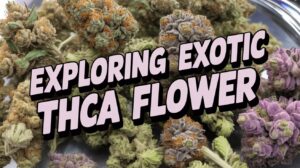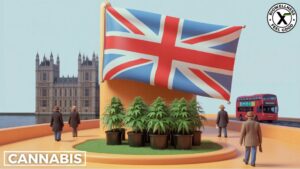In this comprehensive State guide, we’ll unpack the legality of Delta-8 THC in Utah, providing an analytical and intellectual exploration of the topic.
Firstly, By examining the current cannabis laws in Utah and federal regulations surrounding hemp-derived Delta-8, we aim to shed light on the legal landscape.
Additionally, we compare and contrast Delta-8, Delta-9, and CBD strains and explore the interactions of Delta-8 with the body’s endocannabinoid system.
Stay informed and discover what your legal hemp options are in Utah.
Key Takeaways
- Semi-synthetic Delta-8 THC is currently illegal in Utah under the Utah Controlled Substance Act.
- Utah has strict regulations on cannabis and its derivatives, including Delta-8 THC.
- Delta-8 THC is not legally available for purchase or possession in Utah, even with a medical marijuana card.
- Hemp-derived Delta-9 THC is legal in Utah as long as its concentration is below 0.3%.
- Delta-8 THC’s legality in Utah is influenced by the Controlled Substances Act, state law, and the Farm Bill.
Legality of Delta-8 THC in Utah
Wondering if Delta-8 THC, a compound found in the cannabis plant, is legal in Utah? Well, we hate to be the bearer of bad news, but for the most part, it’s not. There’s a complicated back story to this, so we’ll try and make it quick and easy.
Firstly, the federal government legalized hemp and all hemp-derived cannabinoids such as Delta-8 THC, given that the levels of Delta-9 THC don’t exceed 0.3%, and Utah was good with that, legalizing Delta-8 under its medical cannabis program. (So far, so good.)
Here’s where the tricky part comes in, Delta-8 THC is an isomer, aka a sibling of Delta-9 THC, the psychoactive compound in cannabis. But, unlike its big brother, Delta-8 exists only in trace amounts, making it extremely difficult and expensive to extract. And so, cannabis manufacturers found a way to extract it from other natural cannabinoids found in abundance, such as Delta-9 and CBD, and make it readily available for an affordable price.
However, this extraction process made a stir in the cannabis industry, as many fly-by companies used cheap formulas to extract Delta-8, causing their users some serious health risks. It’s that risk that put Delta-8 on some states’ radar as a potential hazard.
Now, back to Utah, on March 2023, lawmakers decided it was time for a hemp makeover with House Bill (HB) 227. Here’s the lowdown.
- They busted out a fresh term – “artificially derived cannabinoids.” These are the cannabinoids born from other hemp compounds through chemical reactions, like Delta-8 THC, Delta-10, HHC, and the rest of the isomer gang.
- These snazzy artificially derived cannabinoids got a fancy label: “adulterants.” This means they can’t join any other cannabinoid party anymore. They’re on the no-guest list in Utah, even for medical purposes.
- The bill dropped a limit of 5 mg per serving for all naturally extracted THC and its isomers and analogs, including the Delta-8 variety. They stuck with the old rule that THC and analogs are in the 0.3% allowable THC club. So, even if we’re going all-natural and start growing some Delta-8-rich hemp, there are still some house rules to follow. Keep it cool, Utah!
- Only licensed dispensaries can sell Delta-8 in the Beehive state.
In conclusion, with all the restrictions on Delta-8 in Utah, it’s as good as being illegal. Unless you get a licensed retailer with 100% naturally derived Delta-8 and have a lot of money to spend, no dice with Delta-8. But don’t abandon all hope; there are still other hemp goodies that you can get in Utah.
Now, you might be thinking, ‘But aren’t some states okay with Delta 8 THC?’ And you’d be right! However, every State has its own take, and Utah has chosen a firm stance against the use and distribution of Delta 8 THC. This stance echoes the state’s aim to uphold existing drug laws and prioritize public safety.
So, for those residing in Utah, it’s crucial to note that Delta-8 THC is illegal. Hence, possession or use of Delta-8 THC could result in legal consequences. Even though hemp products, including hemp-derived cannabinoids, are gaining popularity, it’s crucial to know what’s legal and what’s not.
However, hemp-derived Delta-9 THC products are legal in Utah with a maximum concentration of 0.3% Delta-9 on a dry weight basis, so if you are still looking for that THC effect and euphoria, check some Delta-9 gummies as long the total mg per serving stays within the legal allowance.
Is Marijuana Legal in Utah?
Let’s clear up any confusion about marijuana’s legality in Utah. The State is quite stringent when it comes to cannabis and its derivatives. At present, the use of marijuana for recreational purposes remains illegal, but there’s a bright side. Utah does have a medical marijuana program that’s a beacon of hope for qualifying patients who need cannabis for medical reasons.
This program, though strict, offers a legal channel to access certain cannabis products. It’s tightly regulated, with dispensaries needing licenses and patients having limited options in terms of what type and how much they can get. Remember, though, that it’s still a big no-no to possess, distribute, or use marijuana outside of these medical reasons. It’s the law, and breaking it is considered a criminal offense in Utah.
Utah Law clearly outlines the parameters for marijuana possession. To possess marijuana legally, you must meet specific criteria. This includes holding a cannabis patient card, making purchases from authorized dispensaries, and ensuring you maintain a 30-day supply within the prescribed dosage.
Obtaining a medical cannabis patient card mandates being at least 21 years old and securing a medical provider’s recommendation for marijuana treatment. If you fall between the ages of 18 and 20, an additional endorsement from the Compassionate Use Board is necessary.
On the flip side, marijuana possession without a patient card is a serious offense, classified as a class A misdemeanor, which encompasses schedule I or II drugs, including marijuana. Conviction can result in a sentence of up to 364 days in jail and a potential fine of up to $2,500.
Notably, marijuana stands apart, as possessing 100 pounds or more escalates the misdemeanor to a second-degree felony. This translates to a prison term of up to 15 years and a possible fine of up to $10,000. The severity of penalties for marijuana possession surpasses those associated with any other drug.
Federal Laws About Hemp-Derived Delta-8: Exploring the Farm Bill
Let’s take a friendly stroll through the world of the Farm Bill. This bill is a crucial piece of legislation when it comes to the legality of Delta-8.
Now, the Farm Bill defines hemp as any cannabis plant that has less than 0.3% Delta-9 THC. That’s the stuff in marijuana that makes you feel like you’re on cloud nine.
So, the Farm Bill gave the green light to growing hemp and making products from it. But here’s where things get a bit sticky. The bill didn’t really talk about Delta-8 or any cannabinoid specifically. Cue mass confusion and a bit of a debate among lawmakers, law enforcers, and the folks who buy these products.
Some folks argue that since you can get Delta-8 from hemp, it should be perfectly legal under the Farm Bill. Others, however, say that Delta-8 is a semi-synthetic compound that should fall under the Controlled Substances Act. So, in conclusion, Delta-8 is legal under federal law for now.
Here’s something worth remembering: even if Delta-8 is federally legal, each state can still make up its own rules on selling and using Delta-8 products. So, before you rush out to buy Delta 8 or get a medical marijuana card, make sure you know what your state laws are.
How Does Delta-8 Work in the Body: Interactions with the Endocannabinoid System
Let’s pull back the curtain on Delta-8 and its role within our body’s endocannabinoid system. Picture this: Delta-8 steps onto the stage and makes a beeline for the CB1 receptor. Their dance triggers a fascinating chemical reaction that alters the release of neurotransmitters in our brains, spurring neuron activity. This performance may even quiet down certain neurons, specifically those that are the main culprits behind transmitting pain signals. And voilà! This could lead to you catching a break from pain and discomfort.
Now, brace yourself for another exciting fact. Research whispers that this interaction between Delta-8 and our endocannabinoid system might have therapeutic benefits for managing a range of physical and mental symptoms.
As with everything, knowledge is power. Understanding the dance of Delta 8 with our endocannabinoid system and the ever-evolving laws surrounding this hemp plant derivative can help us navigate the world of cannabinoids responsibly.
Comparing and Contrasting Relevant Cannabis Strains: Similarities and Differences of Delta-8, Delta-9, and CBD
Hey there, let’s have a chat about Delta-8 THC, Delta-9 THC, and CBD, all key compounds derived from our trusty Cannabis plant. We’re going to break them down, provide some real-world context, and hopefully help you make more informed decisions based on your needs.
Understanding these variations is crucial for making informed choices and ensuring compliance with state laws and regulations regarding cannabis products.
Delta-8 THC
Delta-8 THC is known for being the mellow cousin, so to speak, of Delta-9 THC. It’s a bit less psychoactive but still delivers a soothing vibe, more like Indica. It’s the perfect match if you’re seeking a bit of relaxation and calmness without the intense high. On the flip side, Delta-9 THC is the life of the party, known for its vibrant psychoactive properties. CBD marches to the beat of its own drum, offering potential therapeutic benefits without any psychoactive effects.
Let’s break this down into bite-sized pieces:
- Chemical composition: Delta-8 THC and Delta-9 THC are molecular cousins with a slight difference in their structure. CBD is a different story, with a different structure.
- Psychoactive effects: Both Delta-8 and Delta-9 THC offer psychoactive properties, but Delta-8 THC is the mellow cousin, offering a gentler high. CBD, however, doesn’t bring any psychoactive effects to the party.
- Potential Benefits: Although Delta-8 THC and Delta-9 THC both have recreational appeal, they can also offer you plenty of benefits, such as calming your anxiety, alleviating your pain and discomfort, and helping you sleep better. CBD is often the choice for its potential therapeutic benefits, such as providing relief from pain, reducing anxiety, and promoting better sleep without the buzz THC compounds bring.
- Legal Standing: The legality of both Delta-8 and Delta-9 are more complex as they’re THC compounds, which makes some states iffy, while CBD is widely accepted in the majority of states.
Delta-9 THC
Now, let’s talk about Delta-9 THC. This compound is commonly present in marijuana and is known for causing the ‘high’ associated with cannabis. It taps into the brain’s reward system, releasing dopamine and triggering feelings of joy and relaxation. Its effects may be similar to Delta-8, but how it affects each person can vary, depending on factors such as dose and individual body response. But bear in mind that Delta-9 THC is held under tighter federal control compared to Delta-8 THC.
On the flip side, CBD doesn’t give you the ‘high’ like Delta-9 THC. Instead, it’s celebrated for potential therapeutic benefits, such as pain relief and reducing anxiety.
Cannabidiol (CBD)
CBD is known for its potential health benefits, all without that mind-altering experience. Because it’s derived from the hemp plant and has a low THC content, CBD is widely accessible in a variety of forms across the U.S.
CBD is not exactly the same as its counterparts, Delta-8 and Delta-9 THC, which interact directly with the endocannabinoid system. CBD, on the other hand, takes a slightly different route, as it flirts with the body receptors from a distance, helping you reduce stress and discomfort without feeling the usual effects of cannabis. It doesn’t have those intoxicating effects, but don’t let that fool you.
Research points to the potential of CBD in managing stress, improving mood, promoting better sleep, and even easing physical discomfort. All this makes CBD a versatile compound with high potential in the medical field.
Here are some key takeaways:
- CBD doesn’t cause a ‘high’.
- It’s easy to find and legal in many states.
- CBD could help you manage stress, mood, rest, and physical discomfort.
Tips for Safe and Proper Delta-8 THC Dosing
Now, getting your dose of Delta-8 THC right is quintessential. It’s not just about enhancing your experience but also about ensuring your safety and steering clear of any unwanted side effects. Let me give you some pro tips that you can bank on:
Think small to start: Initiate your journey with a modest dose, say around 5mg. Allow your body to absorb it and gauge the effects before you even think about upping the dose.
Acknowledge personal variances: You must understand that the effects of Delta-8 THC can vary from person to person. So, what may be the perfect dose for your buddy might not necessarily sit well with you.
Take advantage of a dosage chart: A Delta-8 dosage chart can come in quite handy. It provides detailed guidance to help you discover the ideal dosage for you.
These nuggets of wisdom will guide you in determining the right dosage based on your personal tolerance and preferred method of consumption. Additionally, you’ll be able to keep an eye on your body’s reaction and refrain from combining Delta-8 THC with other substances. Safety should always be your priority. Therefore, it’s crucial to stay within the legal boundaries and relish the benefits of Delta-8 THC in a responsible manner.
Furthermore, remember, if you’re part of Utah’s medical marijuana program and hold a medical marijuana card, you can legally purchase Delta-8 THC. Nevertheless, it’s always wise to consult a professional before you buy Delta-8 to ensure you’re complying with all legalities and safety measures.
Where To Buy Hemp Products In Utah
Now, since Delta-8 is illegal in Utah, you can’t legally buy it there. However, you can get other hemp goodies such as Delta-9 THC edibles and full-spectrum CBD products. In Utah, you have some good legal options, including online vendors and local dispensaries.
For instance, here at BioWellnessX, we provide a vast array of organic hemp products. We’ve been in the industry for over a decade, earning rave reviews from cannabis enthusiasts across the nation, showing our commitment to delivering top-notch hemp products. The best part? We comply with the Farm Bill, which means our products are federally legal, and we can deliver right to your doorstep in Utah!
Our selection includes organic Delta-9 gummies, perfect if you’re just starting your journey with THC or if you’re a seasoned user seeking a potent experience. If you’re uncertain, reach out to one of our experts to guide you.
There’s also the option of local dispensaries that may carry Delta-9 THC products. However, it’s crucial to check their compliance with Utah state law.
Final Thoughts: Is Delta-8 THC Legal in Utah?
In conclusion, the legality of Delta-8 THC is a bit complex, but we can say it’s illegal in the state. While Delta-8 isn’t welcomed in the state, Utah still allows other federally compliant hemp-derived products, such as CBD and Delta-9 THC.
However, it is important to note that Delta-8, Delta-9, and CBD have different effects and legal classifications. Understanding the interactions of Delta-8 with the body’s endocannabinoid system is crucial for safe and proper dosing.
Consumers should also be aware of where they can legally purchase Delta-8 THC in Utah.

Legal Disclaimer:
By reading this information presented, you agree to release the author of any liability that comes from using this data. This post contains no legal advice. Claims about cannabinoids have not yet been approved by the FDA. Read the full legal disclaimer here.
Other Related Articles About Delta-8 THC
- Delta-8 vs. Delta-10 For Pain: Which Works The Best?
- Organic 50mg Delta-8 Gummies: Benefits and Effects
- 100mg Delta-8 THC Gummies Review From BioWellnessX
- Indica vs Sativa Edibles: What’s the Difference?
- Delta 8 Edibles Review And Where to Buy Them!
- Is Delta-8 or CBD Better For Pain? The Top 5 Differences!
- Delta-8 THC Near Me: Best Places To Buy Delta-8 Products!
- Delta-8 THC Delivery – How To Easily Get Your Delta-8 Delivered!
Curious About Utah’s Surrounding State Laws?
- Is Delta-8 THC Legal In Idaho?
- Is Delta-8 THC Legal In Wyoming?
- Is Delta-8 THC Legal In Colorado?
- Is Delta-8 THC Legal In New Mexico?
- Is Delta-8 THC Legal In Arizona?
- Is Delta-8 THC Legal In Nevada?
References:
FAQs About Delta-8 and Legality
All cannabis products aren’t legal in Utah for individuals aged below 21 YO. As for Delta-8, it is illegal in the state.
Delta-8 THC can show up on a drug test and cause a positive result. If you’re expecting a drug test, we recommend stopping THC products for 90 days before the test.
Consuming Delta-8 THC may have potential side effects and risks. These can include dizziness, anxiety, paranoia, dry mouth, increased heart rate, and impaired coordination. Start with low doses to avoid potential side effects. It is important to consult with a healthcare professional before using any cannabis-derived products while on prescription medication.
Fun Facts About the State of Utah
- Mighty National Parks: Utah boasts five stunning national parks – Arches, Bryce Canyon, Canyonlands, Capitol Reef, and Zion. Each park features unique landscapes, from arches and canyons to hoodoos and red rock formations.
- The Great Salt Lake: The Great Salt Lake is the largest saltwater lake in the Western Hemisphere. Its high salinity level allows visitors to float effortlessly in the water, making it a popular destination for those seeking a unique swimming experience.
- Olympic Legacy: Salt Lake City hosted the 2002 Winter Olympics. The legacy of the games lives on in the city, with visitors able to explore Olympic venues, like the Utah Olympic Park, and even try bobsledding or luge rides.
- Dinosaur Discoveries: The state is a haven for paleontologists and dinosaur enthusiasts. The Cleveland-Lloyd Dinosaur Quarry contains one of the densest concentrations of Jurassic-era dinosaur bones in the world.
- Natural Bridges: Utah is home to the world’s first International Dark Sky Park, Natural Bridges National Monument. Stargazers can marvel at the incredible night skies and see the Milky Way without light pollution.
- Skiing Paradise: Utah is renowned for its incredible ski resorts, earning the nickname “The Greatest Snow on Earth.” The state’s mountains offer excellent skiing and snowboarding opportunities.
- Mighty Five Adventure: The “Mighty Five” refers to Utah’s five national parks, which can be explored on the Mighty Five Road Trip, showcasing the diverse landscapes of the state.
- Monument Valley: Recognizable from countless Western films, Monument Valley is a striking desert landscape on the Utah-Arizona border. It is a Navajo Tribal Park featuring iconic sandstone buttes and mesas.







